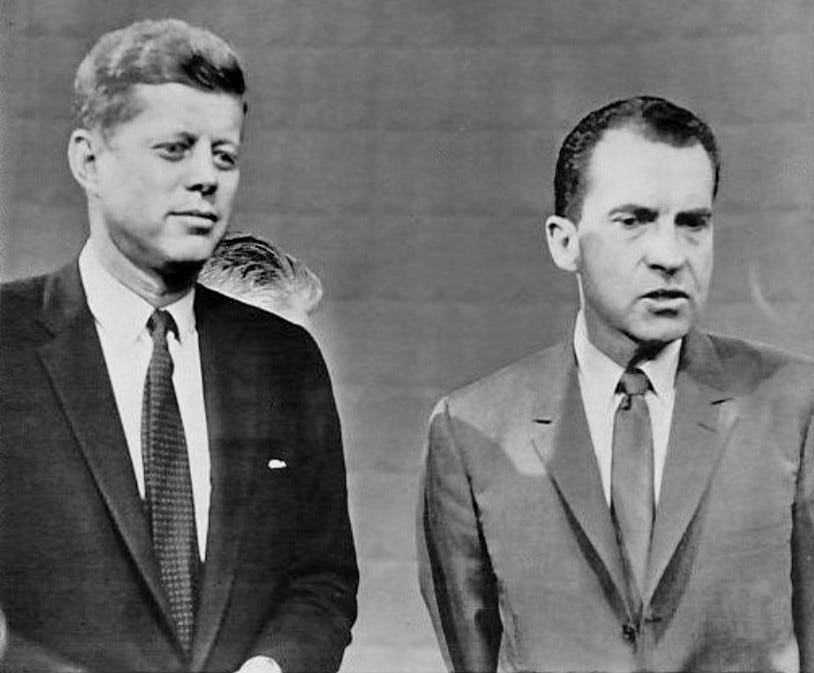The Official Losing Presidential Campaigns Tier List, Part II
Finishing the rankings of America's greatest losers
Read part one here:
C Tier
Richard Nixon, 1960
It really was the perfect outcome.
As far as Richard Nixon’s career goes, not much attention is given to his Vice Presidency. In the popular imagination, he’s squarely a creature of the ‘60s and ‘70s, the embodiment of the very spirit of those times. In a lot of ways, he was. But he was also around for quite a long time before that, and to get to that point, he had to eat a metric ton of dirt. From the candidate recruitment committee to the U.S. House to the U.S. Senate, Richard Nixon spent decades carrying the water for men more important than him so he could finally have his turn. And by all accounts, there was no period of his career where he was more in the mud than during his eight years under Dwight Eisenhower.
The best way to characterize the relationship between Eisenhower and his second-in-command would be that of an absent father. The tone here was set very early on. Right after Nixon was named as Eisenhower’s running mate in the 1952 election, the Checkers scandal broke, forcing Nixon to meet privately with Eisenhower to beg to stay on the ticket. He was photographed leaving the meeting in tears. While Eisenhower still kept him on the ticket, it is said that he never fully forgave Nixon for the embarrassment he caused. Four years later, he tried to kick him off the ticket again. Even as Nixon stayed on both times, Eisenhower never truly accepted him as his successor, despite the fact that he had been pretty clearly picked for that exact purpose.
I’m bringing all this up to help provide some context to one of the most singularly baffling decisions on this list: Nixon’s decision to keep Eisenhower at arm’s length and run as his “own man.” This was a bad decision, and it undermined his campaign from the very start. The difference between it and the other bad decisions that undermined entire campaigns is that Nixon’s chosen strategy of independence wasn’t a poor choice in and of itself, and he actually executed it quite well. Given that the 1960 election occurred in between Eisenhower’s two landslides and the Republican dominance in presidential elections between 1968 and 1988, it’s easy to take a competitive Republican performance that year for granted. It shouldn’t be. Nixon’s bid came only two years after a historic wipeout for Republicans in the 1958 midterms. It’d been 32 years since a Republican who wasn’t a world-renowned war hero had managed to win a presidential election. It was years before the rise of the issues that carried him to victory in a far less impressive campaign eight years later. But despite all of this, Nixon still came within an inch of winning. In that context, it was a very impressive performance.
So, why not have Nixon higher up? I considered it, but it’s hard to give him too much credit for executing a merely good strategy when simply swallowing his pride one last time and attaching himself to Eisenhower would have likely ensured a win. There are also his extraordinarily famous errors and gaffes, like his refusal to wear makeup during the televised debates and his insistence on visiting all 50 states. All of this added to an utterly sublime final outcome: Nixon being denied the thing he desperately wanted, more than anything in the world, because he began to believe in himself too much. He deserved absolutely nothing less.
Mitt Romney, 2012
George Romney, Mitt’s father, once said that “you can’t be too right and too soon and win elections.” The first part of his line isn’t very accurate, at least as his son is concerned. Mitt Romney is a silly conservative with silly ideas, making him quite far from being “too right” about anything. The second part, however, is extraordinarily accurate. Mitt Romney’s nomination absolutely came too soon.





